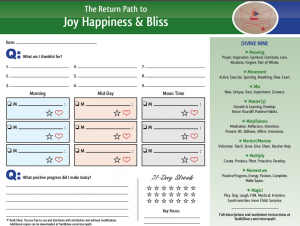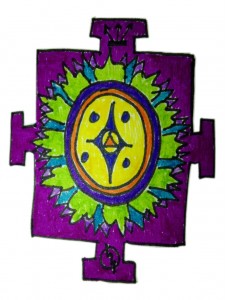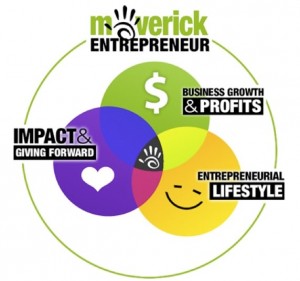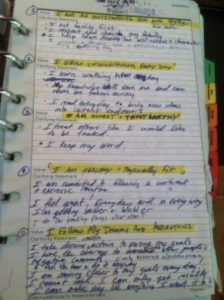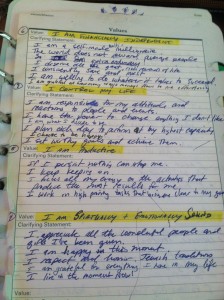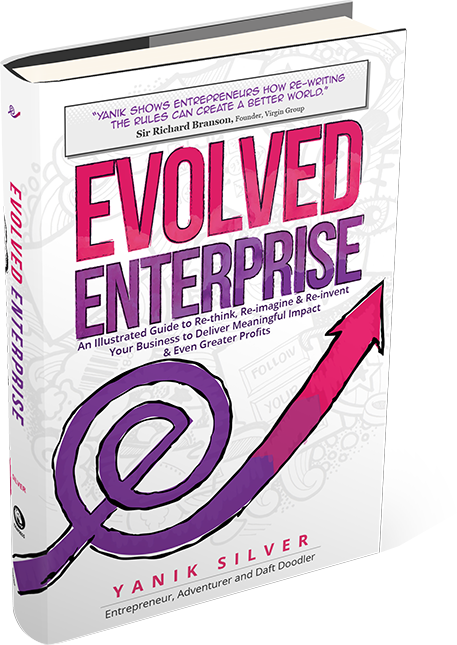The last few years I’ve struggled quite a bit with keeping myself and my businesses moving forward because of the new direction I’ve taken. The same playbook I was using before just didn’t seem like it fit me anymore.
And that’s probably good because in many ways I’ve grown as an entrepreneur and individual. (In fact, I’ll be sharing a lot of this journey in future essays.) I’ve always experimented with what provides me with more bliss, joy, confidence and a feeling of accomplishment. I have a serious stack of books in my library on the subject of happiness, philosophy and self-improvement.
Simply put, what you do each day has a compound effect on your life, your happiness and outlook.
Not surprisingly there are certain combinations that create “good” days and others that have more depressing affects. Of course, everyone has their own version but I wanted to see what universally works. For instance, some people will tell you to get up early – but that doesn’t work for everybody. I really like to sleep in especially if I played hockey the night before. But if I feel guilty because I’m “supposed” to get up at 5 or 6 am then I’m already starting off in the wrong direction. I get some of my best insights at 2 o’clock or 3 o’clock in the morning so getting up at 6 am the next morning is just not happening!
I’ve applied all 9 of the main components on this list at various times with various degrees of results – but not always in a daily way that’s been with intention or consciousness. That’s why I created my own daily checklist to help ensure I’m on the right path, and now by sharing it, I have even more accountability of making sure I ‘walk the talk’.
For a while I simply had these listed on my whiteboard as I experimented with them to see what worked.
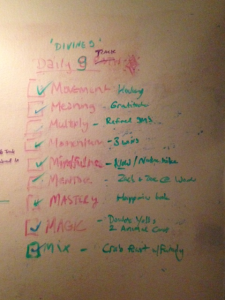 Actually this has been in draft mode for like 4 months because I’ve been experimenting with the daily practice but not always tracking it every day. So if I wasn’t doing it perfectly, I thought I shouldn’t publish this. But that’s a bit silly because I’ve seen the more of these 9 practices I intentionally hit each day – the better my life becomes! So why wouldn’t I share it now and by doing so, it forces me to ‘walk the talk’ even more.
Actually this has been in draft mode for like 4 months because I’ve been experimenting with the daily practice but not always tracking it every day. So if I wasn’t doing it perfectly, I thought I shouldn’t publish this. But that’s a bit silly because I’ve seen the more of these 9 practices I intentionally hit each day – the better my life becomes! So why wouldn’t I share it now and by doing so, it forces me to ‘walk the talk’ even more.
Beyond that checklist, I also created a simple but flexible tool that I’ll share with you at the end of this post.
From everything I’ve applied, studied, and done for the last 2 decades, I’ve put together these 9 ‘M-Power’ categories or if you’re into rhymes like “If the gloves doesn’t fit you must acquit” then go with “Divine 9”.
Don’t worry… you might not necessarily need to hit something from each grouping daily, plus some activities might fall under multiple spots. But just see what works for you and how you feel. For some people you might want a bigger focus with your attention on 1 or 2 more ‘important’ ones, and your activities will be based there. That’s cool too. Check it out for yourself and see what’s right. And don’t try to start too many key daily habits at once. (There’s a built-in mechanism in the form you’ll get for what to bring your attention to.)
Here are your nine ‘M-Power’ categories:
- Meaning
- Movement
- Mix
- Master(y)
- Mindfulness
- Mentor/Mentee
- Multiply
- Momentum
- Magic
Let’s dig into some detail so you get the idea and see some of the options here…
1. Meaning:
What you take meaning from nourishes you. For some people it works best to wake up and read, watch or listen to something inspirational. It could be religious, spiritual or self-development focused. Or perhaps its prayer in a traditional or non-traditional way.
One of my favorite ways to create more meaning is to recount what you are grateful or 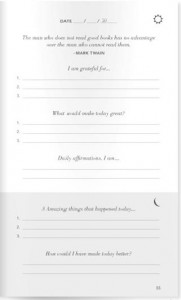 thankful for today. There’s a cool journal called ‘5-minute journal’ that will give you a simple place each day to write down what you’re grateful for each day and night. If you don’t do journals this is a good one to start with.
thankful for today. There’s a cool journal called ‘5-minute journal’ that will give you a simple place each day to write down what you’re grateful for each day and night. If you don’t do journals this is a good one to start with.
I think being grateful is one of the biggest ‘secrets’ to truly being happy. It’s so important I made it a featured spot in the worksheet I’ll share with you shortly. Anytime I’m feeling down or depressed, I realize that I haven’t been paying enough attention to what I’m grateful for. Spending 5-10 minutes writing all of my blessings down gets me feeling much better. It can’t help but work because gratitude connects to the source of abundance that’s all around us instead of thinking about what you lack and giving in to scarcity.
Your meaning is directly tied to your emotions. Viktor Frankl wrote Man’s Search for Meaning giving his account for creating meaning from his imprisonment in a Nazi concentration camp. If you have not read or not read it in awhile, it’s well worth picking up. The only thing that sustained Frankl in the concentration camp (unlike so many others) was seeking meaning, wisdom and teaching from his situation. Creating a reason that something occurred gives us more strength and resilience.
Interestingly enough, I was on a flight to Johannesburg to work with Virgin Unite and then going on Safari. And sitting next to me was a gentleman who shared his story with me. He was in the ANC and was picked up for demonstrations against apartheid. Before being given any attorneys or due process, he was tortured and forced to make a confession against his friends. But when the time came for his trial he would not confess. So back into jail he went for 5 years this time. It was the same jail where Nelson Mandela spent so much time at Robben Island outside Cape Town.
My seatmate told me he could have come out 2 ways from prison. One being bitter and broken or more resolute and convinced that apartheid needed to be ended. It’s a pretty incredible story of how meaning drives our lives. His name is Luyanda Mpaphway and today he’s one of the most prominent architects in South Africa designing embassies and other iconic buildings. I asked him if he had confessed if he thought he would be where he was today and he told me flat out – ‘NO’.
My friend Chip Conley has an excellent book Emotional Equations that breaks down different emotions into these kind of mathematical formulas. Here’s one of them:
Despair = Suffering – Meaning
So as we UP our meaning there’s less despair and suffering we go through. That’s also why if you have a purpose or ‘epic goal’ then you are part of something bigger, and it gives you more meaning.
You can combine categories together too like ‘Mix’ and ‘Meaning’. Imagine how you would feel sending out a personal handwritten note to someone you are thankful to (My very first post was about the power of handwritten notes and they work in a big way!). Your meaning will soar using them and your connection will deepen.
Love is a big part of meaning. And finding ways to love yourself is so powerful. You’ve probably heard you need to start within, and in some ways I’ve practiced this incredibly well but other ways I’ve totally missed the boat. I learned long ago that I’m responsible for my own actions, activities, emotions, success, etc. I wouldn’t blame the outside world but for some reason this idea of loving yourself and feeling immense self-love never hit home until recently.
One of my favorite new books is by my friend and Silicon valley entrepreneur, Kamal Ravikant. The book is called Love Yourself Like Your Life Depends On It. Get it on Kindle or a paperback version. It’s awesome! And for bonus extra credit points you can do a slightly ‘weird’ exercise Kamal recommends.
You set a timer for 5 minutes and look deeply and tenderly at yourself in the mirror. Repeat “I love myself” or “I love you” over and over again in a gentle meaningful way. Really look at yourself. It’s a little crazy at first but as I’ve done it more, I cannot help but get a little twinkle of playfulness in my eyes and walk away feeling great. Nobody else needs to know about it – it’s just you in the mirror.
This is just one piece – you need the whole story of how his business was crumbling and his self esteem was in the crapper. I don’t want to ruin it here. Don’t be a cheapskate – get it yourself.
The notion of loving myself and everything that entails is a central theme that landed on my front page of my most recent journal to focus on.
Another powerful piece you can incorporate into your daily practice under Meaning is forgiveness. Forgiving yourself or someone else in your life can have such a glorious response. I’ve seen some very close people to me live with anger and pain because of a supposed wrong inflicted on them. We all have ‘wrongs’ against us but the energy it takes to remain angry at someone creates a permanent bond of negativity. You’re not hurting them by keeping that anger inside.
Meaning Ideas and Examples:
- Gratitude
- Inspirational/Spiritual reading, studying, development
- Prayer
- Epic goal
- Kindness done
- Ritual/ceremony
- Handwritten note to someone meaningful to you
- Love yourself
- 5-Minute “I love you” exercise in mirror
- Forgive someone
- _________<insert your own>_____________
2. Movement:
Any type of exercise no matter for how long will be beneficial. Our bodies were designed to move. I used to have a personal trainer who helped keep me accountable to a workout, but I never looked forward to it. I think there’s something more beneficial when your choice of movement is actually something you enjoy.
I play hockey 1-2 times per week and love that. It’s an awesome workout (though probably a few beers after game might negate part of it). 😉
And this past summer I’ve taken to swimming, and I’ve got my first stand-up paddle board from Underground® speaker, Stephen Aarstol’s Tower Paddle Boards, of course. (BTW – we’re coming up on our 10th anniversary celebration Underground event and if you want to attend as a VIP go here.) Also, a bit on-and-off Missy and I have done yoga. I’m a big fan of that combination of movement – intention and breath work here.
Think about what you like to do, it could be sports, exercise, dancing, walking whatever. Yes, even a walk is one of the most underrated ways to get your movement in for the day.
It doesn’t have to be super rigorous and truly anything is better than nothing. If I realize I haven’t done much movement in a day, then I will make sure I knock out some push-ups before bed or maybe a few pull-ups. Anything helps. (Actually here’s a cool article on a 7-minute scientifically proven routine with only your body weight.
Movement Ideas and Examples:
- Yoga
- Tai Chi
- Sports
- Athletics
- Dancing
- Stretching
- Walking
- ________<insert yours>_______________
3. Mix
We crave variety and connection – these are two main factors of the MIX category. A new or unique experience will light up the brain and actually cause it to rewire with new connections. Your ‘Mix’ daily practice could be anything from a new way to head to work to trying a new restaurant. Or get even bolder. Think about what you can experiment with or try that you haven’t done yet. Go skydiving, go scuba diving, go do something interesting. (I put together a little ebook on creating your Ultimate Life List if you need some more inspiration.) Positive psychology has proven there is more long-term joy in experiences than just buying another ‘thing’. You might desire a thing but experiences always create more happiness.
Or what about something that scares you? Think what it would look like if you tested your own boundaries repeatedly? It doesn’t have to be anything big. One of my mentors, Frank McKinney, told me he will get his daughter to do something wild like run the opposite way on the moving people mover at the airport for 5 bucks.
Another side of ‘Mix’ is the idea of mixing with others and connecting. We’re social creatures and the more you can create connections that matter with your family, lover, children, colleagues, friends and social groups – the happier you’ll be. And I’m not talking about cursory Facebook connections. Even though we’re in an increasingly digital world- it’s the real-world, deeper connections that truly matter.
You can foster a deeper connection by really engaging with others who are meaningful to you. It could be through a phone call, long lunch or a thoughtful gesture.
Mix Ideas and Examples:
- New Experiences
- Something Scary
- Something Different
- Connections
- Creating a Dinner Party
- Thoughtful gesture
- Introducing People Together (professional or personal)
- Meaningful conversations (i.e. talking on phone with friend and really listening for 30 min. Asking deeper questions, etc.)
- ________<insert yours>_______________
4. Master(y):
I named this category Master(y) because there’s Mastery and Master. The latter is about mastering yourself. That means carving out time for yourself for what you love to do or what nourishes your soul. It might also mean saying ‘NO’ more often or honoring yourself by having ‘difficult’ conversations. Give yourself credit for doing these things that add more to your integrity and self worth.
Every time you are inauthentic and say ‘yes’ to something you know you should really not – you lose a little bit of yourself along the way. It’s like an energy leak that deflates you. Conversely when you start dictating what you will and will not do – you gain more of it. What can you say ‘NO’ to today that is not in line with yourself? Or sometimes even better yet – WHO should you cut out of your life? Sometimes that’s a tough question but will drive your happiness.
Or maybe it’s making that call you dread. Firing that team member you know that has to go, etc. If there’s something that really scares you – do it!
Adding the ‘Y’ to the end of the root word is Mastery and the opportunity to build yourself up over time.
If you are growing and learning each day, that sets you on the right path where you feel like you’re developing. Personally, I love to read and learn something new each day. I’ll go through at least a book a week on various topics.
One of my first mentors, Earl Nightingale, taught me (through his books and recordings) that if you want to become an expert in any subject simply read/study for 1 hour per day for 3 years. Or to become a world-class expert read and study for 1 hour per day for 5 years. I never forgot that and took it to heart with copywriting and direct response as the first skill sets I mastered.
We have so many easy opportunities for learning and growth. There are a ton of videos and educational materials online. Get the Swift app for your iPad and you can play videos at up to 2x speed to cruise through even more stuff, i.e. TED.com presentations.
But mastery goes beyond simply skill sets – there are more applications…
Create easy daily habits to develop your mastery muscle. Even something as simple as making your bed counts. I’ve never made my bed for years, either Missy did it or I simply left it unmade. (I mean why bother since you’re getting right back in it that night?) But after a entrepreneurial monk named Dandapani at my friend Jayson Gaignard’s MasterMind Talks event – I have committed to making my bed each morning. It sounds a little dumb but there’s power here. Your daily habits could be as simple as flossing your teeth each day. Set yourself up with daily habits that empower you.
Hopefully these 9 categories will be part of your daily habits also. (btw – when you check out the first draft of the worksheet at the bottom of this page there’s a way to track your most important daily habit you’re focusing on and create a 21-day streak.)
Master(y) Ideas and Examples:
- Saying ‘No’
- Having a difficult conversation
- Time for yourself
- Growth & Learning
- New language
- New skill
- Reading, classes, workshops, etc.
- New positive habit
- ________<insert yours>_______________
5. Mindfulness:
The biggest part about mindfulness is your intention. It’s the difference between actively engaging and manifesting what is around you or simply letting things happen to you by default. Now don’t get me wrong, there are many times I prefer to be in ‘flow’ moments where I see what happens next or let my intuition guide me – but that’s happens with mindfulness too. (I know it seems circular but it’ll make sense.) The fact is, your intuition only speaks in the quiet space in between your mind chatter. It’s these ‘flow’ opportunities that are created from simply ‘being’ mindful and aware.
Part of my deeper voice has kept bringing up these daily activities and now by writing about, it I am forced to directly bring them into the forefront of my consciousness.
Think about something you do everyday. Do you set an intention for your day? Do you create a conscious decision about what you will or will not eat? Or if there are a bunch of M&Ms sitting around – will you snack on them? What about your intention for drinking (alcoholic or non-alcoholic drinks), how you sleep, what you listen to, watch, etc.?
What about what you watch on TV? I get the least satisfaction when I mindlessly flip through channels sometimes on the couch to ‘chill out’. It doesn’t actually work. But when I sit down to watch a show or a movie with intention there’s much more satisfaction.
Mindfulness can be derived from traditional or non-traditional meditation practices. For example, a really intense ski run has a meditative quality to it since you have to be in the present. It’s really about cultivating that stillness and presence in the now that opens up that inner voice of knowing. It’s being in the moment.
Your mindfulness could also be visualizing or imagining the future in a vivid way in your mind or in your journal. In fact, your journal is one of the most important pieces of your daily return path. We’ve already covered gratitude and we’ll get to Momentum & positive progress as big spots for journaling. Another positive activity that’s been scientifically proven to make you happier is expressive writing. You see, writing automatically creates a ‘beginning, middle and end’ instead of everything swirling around in your head. (I have an entire blog post on journal writing on my old Internet Lifestlye blog.)
Your mindfulness can be found in the language you use, whether it’s empowering affirmations or thought-provoking questions. Questions are some of my favorite ways of creating bigger new ways of thinking.
I think questions dictate your answers and the more powerful questions you ask the better the answers are in life and business.
In Robert Kiyosaki’s best-selling, Rich Dad, Poor Dad series one of my favorite distinctions was revealing. Kiyosaki tells of his “Poor Dad” looking at a beautiful stretch of beach and saying, “I can never afford to live here.” And conversely his “Rich Dad” looking at the same stretch and saying, “How can I build something here?”
It’s the questions that open you up to all sorts of possibilities instead of simply saying “I can’t afford it” and closing down that conversation in your head. Our minds want to search for answers.
I like writing down my question on the top of a piece of paper or my journal and then working on multiple answers. Most times the first answers you get will be pretty pedestrian and won’t have much creativity to them. Keep pushing yourself to come up with more distinctions and sometimes even wilder answers. Don’t censor yourself either – just write. Or if you really want to go deeper use your non-dominant hand to answer. (Seriously! You can read about why this works in my friend Bill Donius book Thought Revolution: How to Unlock Your Inner Genius)
Check out Mindful.org for other ideas for incorporating mindfulness into your daily practice.
Mindfulness Ideas and Examples:
- Meditate
- Awareness of language
- Intention for food, drinking, etc.
- Stillness
- Being in the now
- Flow
- ________<insert yours>_______________
6. Mentor/Mentee:
Originally this was only Mentor but this missed the natural state of giving AND receiving.
Mentoring is taken here in a broad sense as teaching or sharing or serving. Humans are naturally wired to increase their happiness by being of service to others. You’ve probably noticed this any time you’ve helped someone.
This could be anything from volunteering your time or your skill sets. (Actually the new 3% Forward Initiative is all about getting entrepreneurs to pledge 3% of their time, talents and brainpower to create an impact.) There are all kinds of sites to help connect you to organizations that can use your skill sets. (We list 30+ inside 3% Forward)
In Jane McGonigal’s groundbreaking book Reality Is Broken: Why Games Make Us Better and How They Can Change the Worldshe describes gamers getting intense pleasure from teaching others what they’ve learned.
And if all of this is not reason enough, by teaching something we get better at the process or skill ourselves. It moves from an unconsciously competent level to a more consciously competent level.
These mentor type opportunities can be found daily if you look for them or are aware of them. With my kids, I look for ways to incorporate a value lesson in some way that’s not preachy but simply part of our everyday lives, conversations or even part of some sort of game. We’ve been playing Cashflow for Kids game, and that provides ample conversation time about passive income versus working at a job.
Another mentor-like opportunity you can become aware of for your day is to do a kind or generous deed. Maybe you’re traveling and it’s helping someone put their bag in the overhead bin or handing it down to them. Counts in my book.
Or maybe something a little more fun. Go through a tollbooth and pay for the driver behind you. It’s interesting to have the driver catch up to thank you or simply be puzzled about why you did that. What about sticking a quarter into an expired meter? Or even cooler put a hidden dollar somewhere. (There’s a whole site dedicated to ideas about how to do this – http://giveawayadollaraday.com/)
Recently at the beach, we were waiting in a long line for the Haunted House ride and I was talking to a few teenage girls behind our family. They seemed really nice and they were visiting the beach for one day so I simply paid for their ride without them knowing. They didn’t thank me afterwards but it didn’t matter. It was the act itself not the recognition that drives happiness. I wasn’t attached to their reaction.
Now let’s talk about the flip side – being a Mentee.
For me, giving has always come easier but I’ve come realize that by not receiving I’m cutting off the natural flow. The best example I heard from someone (and I wish I could remember who) is by not receiving it’s like you are holding your breath and not breathing in. Got it. Makes perfect sense after that.
By receiving we also allow others to be mentors and give. Surprisingly (or maybe not) people appreciate helping when you ask for help or even providing a favor and being able to help you. Benjamin Franklin talks about this quirk of human nature in his autobiography describing someone he couldn’t stand. But by asking for favors, they developed a relationship. I just wasn’t good at asking before. Now knowing it’s all interconnected, I’m asking more and more for exactly what I need help with.
Mentor/Mentee Ideas and Examples:
- Ask for help, favor, assistance
- Give
- Volunteer
- Mentor
- Teach
- ________<insert yours>_______________
7. Multiply:
Multiply is all about the art of creation and not simply being a passive consumer. The fact is all of us are creative but might not recognize it if we are not in traditionally ‘creative’ roles. I assure you – you’re still creative.
For me, I’ve found that writing in the morning gives me a powerful feeling of accomplishment. On days I write I’m much happier and feel like I’ve been proactive. It doesn’t have to be a masterpiece, it just needs to be something.
You don’t even need to label yourself an artist, craftsman, writer or musician but if those things engage you – let them out. Don’t let your inner critic judge. When I taught copywriting to others I always talked about the inner critic and how hard it is to write good copy (or really anything) when you have this little voice telling you something sucks.
You CANNOT create and edit at the same time.
It’s much better to create in a white-hot intensity and then edit. Don’t just create when you are inspired to. One of my favorite ‘hacks’ is to set up a timer – the great copywriter Eugene Schwartz used to write in 33-minute focused spurts. After the 33 minutes were up he would take a break for 10-15 min. and let his mind go wherever it wanted. Then he’d be back again doing this cycle 6 times in total each day. (BTW – Eugene Schwartz was one of the absolute highest paid copywriters in the world!)
Remember Mastery? This all interrelates so create or multiply daily!
The big point is I want you to think about how you can produce instead of just consuming. You get so much more confidence and joy out of producing something of your own (i.e. a mash-up, scrap book, etc) than simply consuming whatever someone else feeds to you.
What’s more, under the Multiply category other things that fit are coming up with new ideas and solutions to problems. You can stretch your brain and come up with ’10 ideas’ for just about anything. Give yourself a focused task and a focusing question (yes, questions again),
ie. “Who else has more to gain than I do from succeeding?”
“What can I do to add 10x-100x in value to my customers?”
You can start with a notepad and simply write out questions (the more defined the better) for solutions to issues you’re going through. Don’t stop at the first answers. Keep going. As a side note, your brain will continue working on questions and problems for you to make sure you have something to capture those ideas as you come up with them all the time. Don’t think you’ll remember it later on. You won’t.
And finally another definition of ‘multiply’ is from the biblical ‘Be fruitful and multiply’ passage. Having a loving relationship with a significant partner or fulfilling sexual desires in a positive way earns a check box in this category too. 😉
Multiply Ideas and Examples:
- Creating (art, writing, music, photography, scrap book, anything really)
- Planting seeds (metaphorically or physically)
- Producing
- Develop something
- Brainstorming
- New Ideas
- Sexual connection
- ________<insert yours>_______________
8. Momentum:
There’s tremendous energy by tapping into where your momentum is, whether that’s in your business or personal life. Haven’t you always noticed when things are going ‘right’ then it just gets better and better? Or you’re more confident and feeling even luckier like things are falling into place? Exactly! Well part of the daily practice is to recognize the positive progress so you can activate the virtuous upward spiral. Similar to being grateful, this is about actively making sure you identify where you are moving forward.
Dan Sullivan of Strategic Coach explains that people being disappointed because they cannot reach their “ideal”.
Dan gives the example of the horizon. We all know it’s silly to think we can ever reach the horizon because it keeps moving as we move closer to it. Same with an “ideal”. We feel despondent and maybe even depressed in our greatest victories if we attempt to measure them up to our ultimate ideals. But the people who are happiest are the ones of take stock of where they are today (Point B) than when they started (Point A). And we can all look back and gain that confidence and awe of how far we’ve come.
Each day taking a measure of where you are versus where you started is a powerful way to avoid the “Gap” as Dan calls it.
Your momentum also comes from following what you’re excited about and have passion to do. Lately I’ve been waking up excited to write about something that might scare me for this new blog. I’ve committed to more vulnerability and authenticity. It’s a little frightening but also empowering since the last few years I’ve been almost ‘re-building’ who I am and what I’m all about through my journal. Now it’s time to share some of that insight for other impactful entrepreneurs.
(I’ve been inspired by James Altucher who I’ve shared the stage with at a private event in NYC with Michael Ellsberg. He really writes from his heart with an authentic voice. You’ll see even more of that here even if it’s some ‘weird’ stuff.)
Your energy and passion for a project or idea is your intuitive nudge giving you a guidepost to more happiness and joy. It’s too easy to justify things you don’t want to do. Imagine if you didn’t.
Momentum also comes from completing tasks – at least the right ones.
Back to Dan Sullivan again.
Dan sets up his days that he only has 3 things to accomplish. That’s it. If he gets more done that’s a bonus – but 3 important things. There’s tremendous momentum from checking an item off your list, especially if its something proactive and moves you forward. Conversely you need to look at what’s on your to-do list. Some things just need to be removed forever and again there’s powerful progress here by deleting.
You’ll also get a positive charge out of completing important tasks that may have been left undone. Many times it’s as simple as just doing whatever the next small step is and that creates the momentum you need to complete the task. I remember, I hating mowing the lawn as a kid so if I just tricked myself into putting on my ‘green’ shoes, I was already closer to getting it done.
And one more thing on momentum is feedback. You need to make sure there are feedback loops for you. And the tighter the time period – the more motivated you’ll be as the feedback gets better. (i.e. having daily metrics or this ‘Daily 9’ checked off each night.)
9. Magic:
“There are only two ways to live your life. One is as though nothing is a miracle. The other is as though everything is a miracle.” – Albert Einstein
Imagine that you believed and saw the magic in your everyday life or simply created it. How much more spectacular would your life be each day? It can be something as simple as just laughing. Whether that’s laughing over dinner with friends, watching a comedy or practicing ‘laugh yoga’.
One of the most overlooked things to try is surprising others. I get such a kick out of doing something (even little) that makes someone else really happy and excited. I once ‘hi-jacked’ my Dad and made him drive me to the airport. When we got there he was given surprise flight lessons by my pilot buddy on my hockey team. He had been wanting to take up flying forever but my stepmother told him it was only for ‘crazy’ people like me.
Bringing something fun to your life nourishes you and you can do it in big ways or just small unexpected ways. (See my post about adding a little bit more fun to everyday occurrences)
And finally in another type of magical sense is finding all sorts of amazing synchronistic patterns, events and meaningful “coincidences”. (That’ll be another post for another day.) But if you are open to it – it’s fascinating to see what pops up in new ways that cannot be an accident.
I’d love to know how you apply these.
If you have other ones you think I missed or maybe should be added. Let me know.
To help you keep track of your days, I created a little 1-pager PDF you can download, copy, share, etc. It’s pretty simple but gets the job done. (Download here)
Return Path 1-pager
Worksheet Instructions:
In the morning, I’d start with what I’m grateful for and fill that section out. Then see if you can hit 3 things during each of the parts of the day. Just write in which one it is. i.e.
M __ovement____ and then what you did.
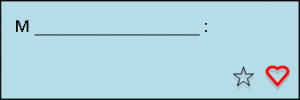 Now the hearts and the stars are places to keep track of 2 cool things.
Now the hearts and the stars are places to keep track of 2 cool things.
The heart is there if it’s something you’re really proud of, something that really moved you or something that’s ‘harder’ to do. i.e. write a handwritten thank you note to someone you care about and mail it. As you go back and track which activities you give yourself a heart for – you’ll see patterns. And those could then become the habit you want to continue doing for a 21-day pattern (the stars) and see if you can truly incorporate that into your life.
The star is something you accomplished that’s part of your 21-day habit/streak you’re working on. It’s a lot harder to work on multiple ones so just focus one star activity for 21-days straight. Use the 21-day streak section to keep a running tally of where you are on that streak.
And then at the bottom of the worksheet, give yourself credit for what forward progress you made today.
Ok I’m really interested in your feedback here because it’ll make the worksheet and the process even better. So please share with me what’s working and what’s not.

